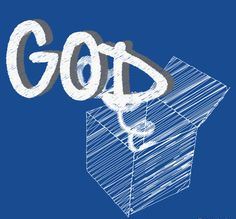The religious elite in Judah expected the sacrificial system to be their salvation in contrast to the fate that befell the Northern Kingdom. They trusted in rituals, rites, and regulations to save them. Jeremiah explains how God wants our hearts, not our sacrifices. He wants our love. Like the bronze serpent, the temple, and the now the Ark of the Covenant had become their idols. They actually thought they had God in the box, i.e., the Ark of the Covenant. The very symbols that had served Israel in the past had become the objects of worship instead of the God who they represented. Speaking of the coming of a new relationship with God, Jeremiah explains that things will be different. He says in Jeremiah 3:16, “And when you have multiplied and been fruitful in the land, in those days, declares the LORD, they shall no more say, ‘The ark of the covenant of the LORD.’ It shall not come to mind or be remembered or missed; it shall not be made again.”
love. Like the bronze serpent, the temple, and the now the Ark of the Covenant had become their idols. They actually thought they had God in the box, i.e., the Ark of the Covenant. The very symbols that had served Israel in the past had become the objects of worship instead of the God who they represented. Speaking of the coming of a new relationship with God, Jeremiah explains that things will be different. He says in Jeremiah 3:16, “And when you have multiplied and been fruitful in the land, in those days, declares the LORD, they shall no more say, ‘The ark of the covenant of the LORD.’ It shall not come to mind or be remembered or missed; it shall not be made again.”
The very object that signified the presence of God in their midst won’t even be remembered nor missed at all. In the context it’s apparent that this is a positive thing. Constance says, “They were no longer to speak of the ark itself because they would have that which the ark was intended to foreshadow. The Lord Jesus Christ, by His coming, has put out of people’s thoughts the material Ark of the Covenant, because its meaning is fulfilled in Him. In Jesus Christ we have a covenant of grace which can never fail and never be broken.”[1] While on the cross the veil in the temple that separated man from God’s presence was split in half from top to bottom. We often think of that as offering us access to God. We can now come freely, one and all, into His presence. But another aspect of it might be that it opened the access from God to man as well. He, in the person of His only Son, came from the Holy of Holies and entered into our presence as well. Jesus surely was “God with us”, or Immanuel!
But He not only “was” God with us. He will literally be God with us in the future and He is now God with us as well. There is a sense of the fulfillment of this prophecy in a mysterious way in the Church itself. Matthew seems to refer to the existence of the Church in this time period as the presence of the mystery form of the Kingdom of God. Ryken says, “We no longer need the ark of the covenant because God himself is with us, by his Holy Spirit. We are no longer divided by pride or race; we all worship together, drawn by the attractive power of God’s presence.”[2] It was the elimination of religious ritual that Jesus brought to bring God’s people back together. People from every tribe and nation will gather together in the Kingdom to worship the God who will reign with them. Every knee will bow and every tongue will confess that Jesus Christ is Lord!
[1] Mrs. T. M. Constance, Jeremiah, vol. 1 (Dickson, TN: Explorer’s Bible Study, 1978), 21.
[2] Philip Graham Ryken, Jeremiah and Lamentations: From Sorrow to Hope, Preaching the Word (Wheaton, IL: Crossway Books, 2001), 60.